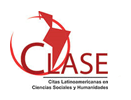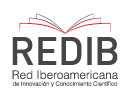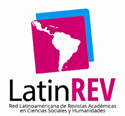Critical thinking skills in university students, acquired through research
DOI:
https://doi.org/10.21142/DES-1201-2020-0009Keywords:
Critical thinking, Critical thinking skills, Research, UniversityAbstract
This research builds upon the notion of critical thinking as espoused by Richard Paul and Linda Elder, who see it as a capability that enables the improvement of one’s own thought, through the acquisition of knowledge, comprehension, and introspection. In this way, critical thinking skills are developed which can be employed by college students: argumentation, analysis, problem-solving, and evaluation. In the case of college students, clearly such skills are indispensable in the development of critical thinking, combined with the support provided by teaching staff, whose role remains essential as a motivating force. Critical thinking in the classroom can be developed through research projects that stimulate students’ reflections, framed by their own context. Such development, founded upon clear criteria, enables the establishing of direct engagement with the skills required for this way of thinking. Therefore, we can conclude that university level research projects enable students to develop the skills and characteristics of the critical thinker.
Downloads
References
Betancourth, S. (2015). Desarrollo del pensamiento crítico en docentes universitarios. Una mirada cualitativa. Revista Virtual Universidad Católica del Norte, 44, pp. 238-252. Recuperado de http://revistavirtual.ucn.edu.co/index.php/RevistaUCN/article/view/627/1162
Curiche, D. (2015). Desarrollo de habilidades de pensamiento crítico por medio de aprendizaje basado en problemas y aprendizaje colaborativo mediado por computador en alumnos de tercer año medio en la asignatura de filosofía en el internado nacional Barros Arana (tesis de maestría). Universidad de Chile, Santiago de Chile.
Dick, R. D. (1991). Una taxonomía empírica del pensamiento crítico. Journal of Instructional Psychology, 18, pp. 72-92.
Facione, P. (1990). Critical thinking: A statement of expert consensus for purposes of educational assesment and instruction. Recuperado de http://www.insightassessment.com/CTResources/Expert-Consensus-on-Critical-Thinking
Facione, P. (2013). Critical thinking: What it is and why it counts. Recuperado de http://www.insightassessment.com/CT-Resources/Teaching-For-and-AboutCritical-Thinking/Critical-Thinking-What-It-Is-and-Why-It-Counts/Critical-ThinkingWhat-It-Is-and-Why-It-Counts-PDF
Halpern, D. (1994). Critical thinking: Ther 21st century imperative for higher education. The Long Term View, 2, pp. 12-16.
Halpern, D. (1998). Teaching critical thinking for transfer across domains. American Psycologist, 53, pp. 449-455.
Hawes, G. (2003). El pensamiento crítico en la formación universitaria. Universidad de Talca. Recuperado de https://www.freewebs.com/gustavohawes/Educacion%20Superior/2003%20PensamientoCritico.pdf
Larraín, A., Freire, P. y Olivos, T. (2014). Habilidades de argumentación escrita: Una propuesta de medición para estudiantes de quinto básico. Psicoperspectiva, 13(1). Recuperado de http://www.scielo.cl/scielo.php?script=sci_arttext&pid=S0718-69242014000100010
Superintendencia Nacional de Educación Superior Universitaria [Sunedu]. (2014). Nueva ley universitaria 30220. Recuperada de https://www.sunedu.gob.pe/wp-content/uploads/2017/04/Ley-universitaria-30220.pdf
Marqués, R., Tenreiro-Vieira, C. y Martins, I. (marzo de 2011). Critical thinking: Conceptual clarification and its importance in science education. Science Education International, 22(1), pp. 43-54.
Mendoza, P. L. (2003). La investigación y el desarrollo de pensamiento crítico en estudiantes universitarios (tesis doctoral). Universidad de Málaga, Málaga. Recuperado de https://riuma.uma.es/xmlui/bitstream/handle/10630/11883/TD_MENDOZA_GUERRERO_Pedro_Luis.pdf?sequence=1&isAllowed=y
Merchán, M. (enero-junio de 2012). Cómo desarrollar los procesos del pensamiento crítico mediante la pedagogía de la pregunta. Revista de la Universidad de la Salle, 59, pp. 19-146.
Nickerson, R., Perkins, D. y Smith, E. (1990). Enseñar a pensar. Madrid: Paidós.
Nieto, A. M. y Saiz, C. (2008). Relación entre las habilidades y las disposiciones del pensamiento crítico. En I. Etxebarria, A. Aritzeta, E. Barberá, M. Chóliz, M. P. Jiménez, F. Martínez, P. Mateos, y D. Páez (Eds.), Motivación y emoción: Contribuciones actuales. Vol. II: Motivación (pp. 255-263). Astigarraga (Guipuzcua): A. G. Michelena.
Niño, R. (1998). Los procesos de la comunicación y del lenguaje, fundamentos y práctica. Bogotá: Ecoe.
Paul, R., y Elder, L. (2003). La mini-guía para el pensamiento crítico. Conceptos y herramientas. Recuperado de https://www.criticalthinking.org/resources/PDF/SP-ConceptsandTools.pdf
Paul, R. y Elder, L. (2005). Una guía para los educadores en los estándares de competencia para el pensamiento crítico. Recuperado de https://www.criticalthinking.org/resources/PDF/SP-Comp_Standards.pdf
Saiz, C. y Rivas, S. (2008). Evaluación en pensamiento crítico: una propuesta para diferenciar formas de pensar. Ergo, Nueva Época, pp. 22-23. Recuperado de http://www.pensamiento-critico.com/archivos/evaluarpcergodf.pdf
Shardakow, M. N. (1963). Desarrollo del pensamiento en el escolar. Ciudad de México: Editorial Pedagógica.
Uribe, H. (2008). El pensamiento crítico en la educación superior. Revista Criterios, 1(1), pp. 17-32.
Downloads
Published
Issue
Section
License

Esta obra está bajo una licencia http://creativecommons.org/licenses/by-nc-sa/4.0/



















